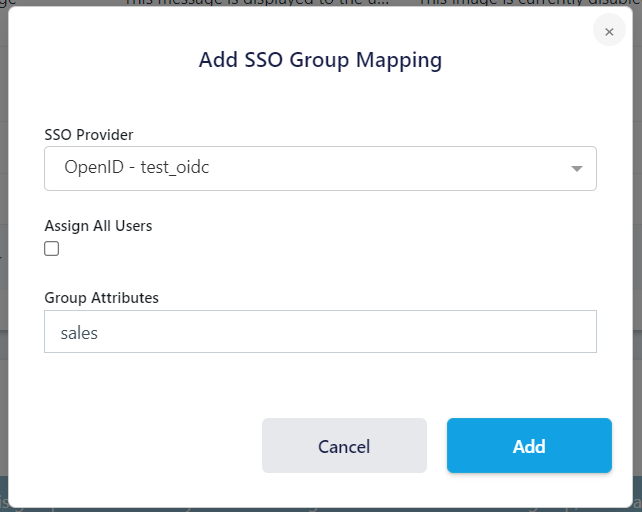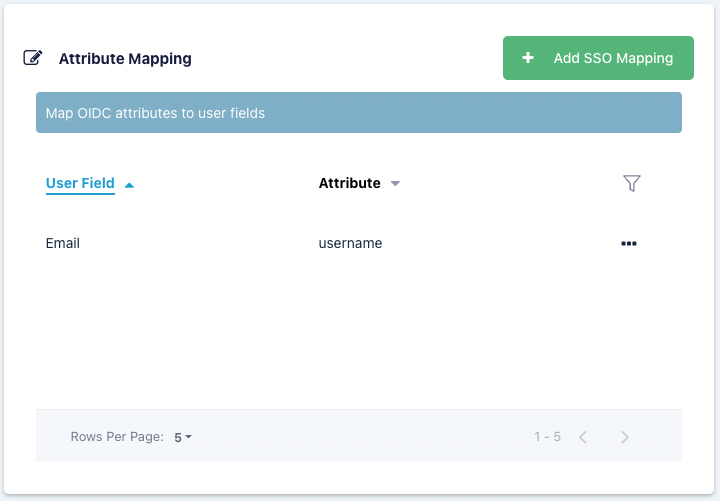OpenID Authentication
Kasm can utilize external authentication providers using OpenID Connect (OIDC).
Warning
Be mindful when configuring OpenID providers that may configurations that are open to the general public (e.g Google, Github). Any user that can successfully auth with the provider, will have access to the Kasm application.

Configuration
OpenID configuration can be found under the Authentication tab in the Admin Navigation Bar.
Property |
Description |
Display Name |
This name is displayed on the login page to represent the authentication provider. (e.g |
Logo URL |
A URL to a login logo image for the authentication provider. (e.g |
Enabled |
When checked this configuration will be active. |
Auto Login |
When checked, the user will be automatically navigated to the OIDC provider when they view the login screen. This only applies if a single authentication provider is visible. If this configuration is set, the fixed login page (without redirection) can be accessed via |
Hostname |
The URL hostname (e.g kasm.example.com) of the deployment. This OIDC config will only be displayed when the deployment is accessed via this URL host name. This allows for a single deployment to service multiple tenants who may need different OIDC configurations. If Default is defined, this config will apply regardless of the host name. |
Default |
If checked this OIDC config will be shown on the login screen of the deployment when access with any hostname, unless another config is defined with the specific hostname. |
Client ID |
The Client ID received from the authentication provider. |
Client Secret |
The Client Secret received from the authentication provider. |
Authorization URL |
The authorization url for the authentication provider. (e.g |
Token URL |
The token url for the authentication provider. (e.g |
User Info URL |
The user info url for the authentication provider. (e.g |
Scope |
The OIDC Scopes for the authentication provider. Enter one scope per line. e.g:
|
Username Attribute |
The attribute from the authentication provider to use for the username within Kasm (e.g |
Groups Attribute |
The attribute from the authentication provider to user for group membership mapping within Kasm (e.g |
Debug |
When checked, the OIDC access and id tokens are logged as well as the response from the user_info api if queried. TLS Verification is disabled for the Authorization URL, Token URL, and URL Info URL API interactions. This feature should remain disabled unless needed for troubleshooting. |
Redirect URL |
The identify provider can be configured to allow access to redirect to this URL. |
Note
A non redirecting login page is at https://hostname/#/staticlogin when auto login is enabled.
Group Assignment
Users that auth via OIDC, can automatically be associated with Groups defined in Kasm. To automatically assign groups:
In the OpenID Authentication configuration, ensure the Groups Attribute is defined.
Navigate to the Groups tab in the admin navigation bar
Using the three dot menu select View of the desired group
Scroll to the bottom of the screen and select Add SSO Mapping.
Select the OpenID IDP for example “OpenID - test_oidc” for the SSO Provider.
Enter the group name used in the identity provider (e.g
sales) in the OpenID Group Name field

Add SSO Group Mapping
OpenID Attribute Mapping
Additional OpenID attributes can be passed with the login redirect. Administrators can optionally map those attribute values to fields on the Kasm user. See the documentation for your OpenID provider for a listing of attributes.
These can be configured by editing an existing OpenID Authentication configuration, if creating a new configuration you will need to submit and edit to add them.
The following Kasm User fields can be populated with values from OpenID attributes.
First Name
Last Name
Phone
Organization
Notes
City
State
Country
Email
Custom Attribute 1
Custom Attribute 2
Custom Attribute 3

Note
Kasm can log all OpenID attributes present in the login event, this is helpful for determining the attribute names. Add an OpenID Attribute Mapping with an attribute name of ‘debug’ and target any user field. The next time a user logs in, all OpenID attributes and values will be logged by Kasm.